“Why didn’t I think of that?” is a question I’ve beaten myself up asking many times in this odd new life when the latest thing to go wrong has gone wrong.
And it’s one I ponder while looking at a landslide, a flood and a jumble of upturned tanks on the hill below our building site which just before the storm was an almost-finished water treatment system.
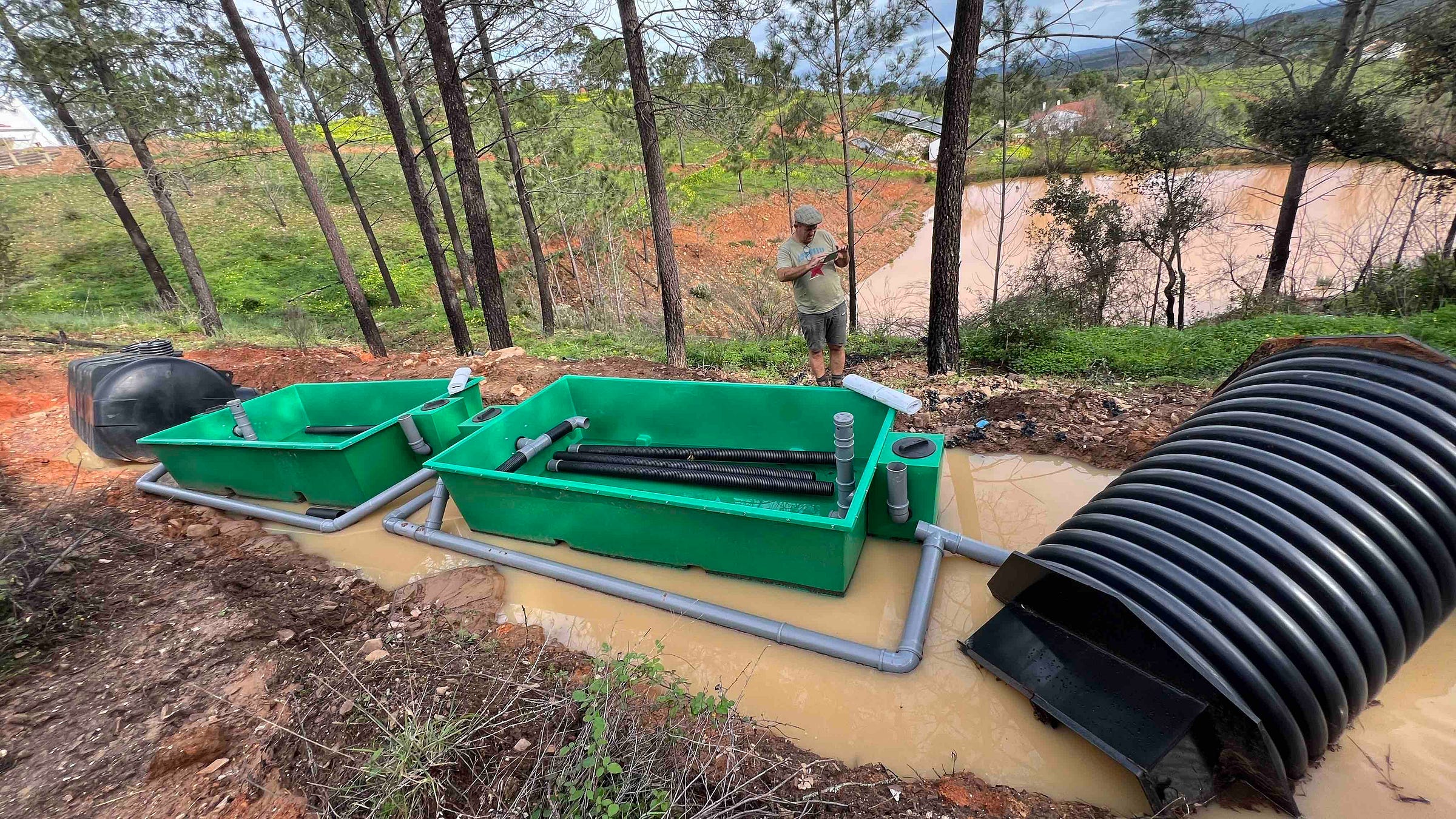
I make a lot of mistakes by rushing into things, not preparing properly and thinking stuff can be done in an impossible period of time...but I can’t take the blame for everything.
In 2002 the then US Secretary of Defence, Ronald Rumsfeld, explained the lack of evidence for Iraqi weapons of mass destruction in a speech referring to “known-knowns, known-unknowns and unknown-unknowns.”
Like Secretary Rumsfeld, and given my lack of experience living in this self-reliant way, it’s the unknown-unknowns which often get me.
“If only I’d thought about that thing I didn’t know might happen, before it did,” makes me feel better when I say it out loud, but it doesn’t mean the whole water treatment tanks aren’t now trashed.
It wasn’t always like that: in my job as a BBC foreign correspondent, I learned to make risks rather than take risks and do a pretty good assessment about whether or not they were worth the reward.
“Flying into Ebola and active insurgency-land in the Democratic Republic of the Congo?”
Yes, it was worth it, but it took me ages to persuade the bosses back in London I wasn’t insane, and to apologise to Ana afterwards for not telling her I was going.
I’ve learned a lot about how to do stuff off the grid, but I often get really frustrated when my own stupidity or lack of properly thinking things through means I not only fail to achieve the thing I set out to do, but actually make it worse: more difficult and more expensive to rectify.
This happens a lot.
I was never terribly good at DIY before, so why should that change with practice? (it really should change with practice, shouldn’t it?)

The “unstoppable force vs immovable object” approach I took in my previous job for getting that interview, that access to a place to tell a story and then get it on air doesn’t work with installing a solar water pump kit without instructions.
I mounted the solar panels onto the aluminium rack ahead of installing the pump (having received the missing parts), but the whole insanely heavy thing somehow flipped over in the gale force winds in this week’s storm.
Force of some wind vs badly secured object.
It doesn’t look like the panels were smashed, as they toppled into a pile of sand, but we’ll see if it still works when it all gets connected up.
If only...I’d secured the struts, or weighed it down with rocks, or left it face down to start with...given the high winds forecast.
As a reporter for a big organisation it was a lot easier getting hold of people who want to get on the telly and have their perspective heard than it is being the annoyingly pushy foreigner in rural Portugal who should know by now that things take time.
The energy and tenacity to push to the point of obsession (or destruction) – whether it be in South Sudan or post-earthquake or hurricane - once led an editor to nickname me “the Duracell Bunny” for my persistence and determination, but that approach clearly isn’t working with one of our key people.
He’s harder to speak to than some African presidents.
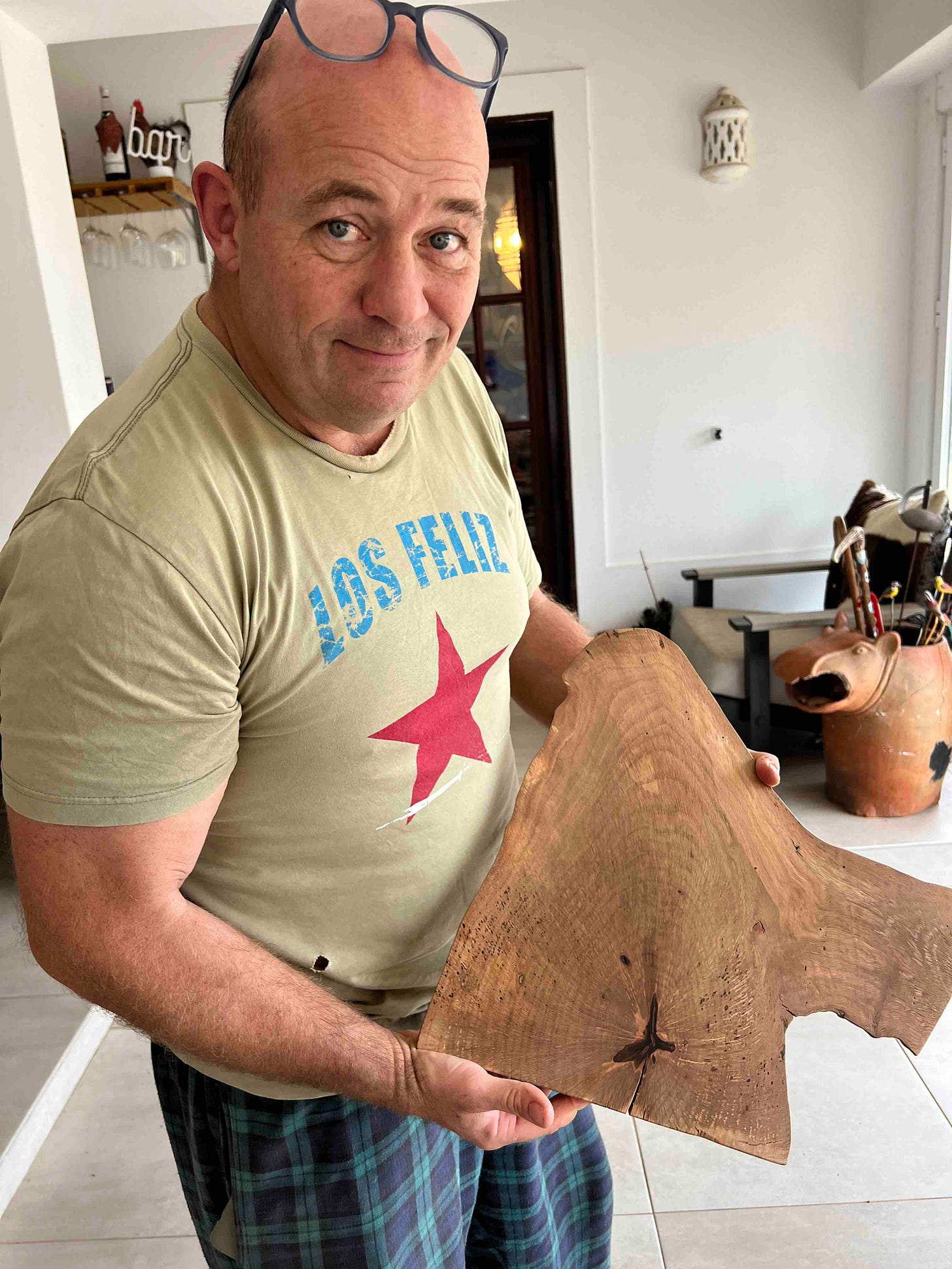
We’ve had a lot of rain recently – our lake has never been so full – but the combination of large amounts of surface water on clay and the presence of newly dug trenches for our pipes and cables is not, it turns out, a good one.
I wrote last week about the giant mole holes for the infrastructure which have turned into swimming pools and waterlogged trenches.
Our building site currently looks more like a First World War movie than our vision of an eco-luxe lodge.
But things took a turn for the worse this week in the absence of our builder and what I would have expected to have been a “known-known” to him.
We’ve placed the water treatment station on the hillside – a sealed large three tank system, followed by two open tanks for reed bed biological cleaning and then a final tank so that every drop of recycled water is used for irrigation up on the future vineyard.
The holes were dug to precise specifications, sand was bought, delivered and then levelled by our good selves before the bulldozer carefully lowered them into place.
We were just waiting for the digger to return, load the reed-bed tanks with gravel and backfill everything – job done – but the wet conditions haven’t been ideal.
While waiting and to protect the system from rain I cut a couple of channels to divert water around the tanks to stop them from being inundated, overturned and generally trashed...but sadly that is exactly what has now happened.
The deluge, combined with the new trenches not being diverted into the lake, created a landslide which has flipped and buried the biggest tank in wet mud and clay, floated another up out of a 3m deep hole and smashed all the pipes linking the system together.
It’s a total mess – it’s going to cost more to undo and then redo than it cost to do it in the first place and the work will eat up vital time. It was the worst of a series of setbacks we suffered this week.
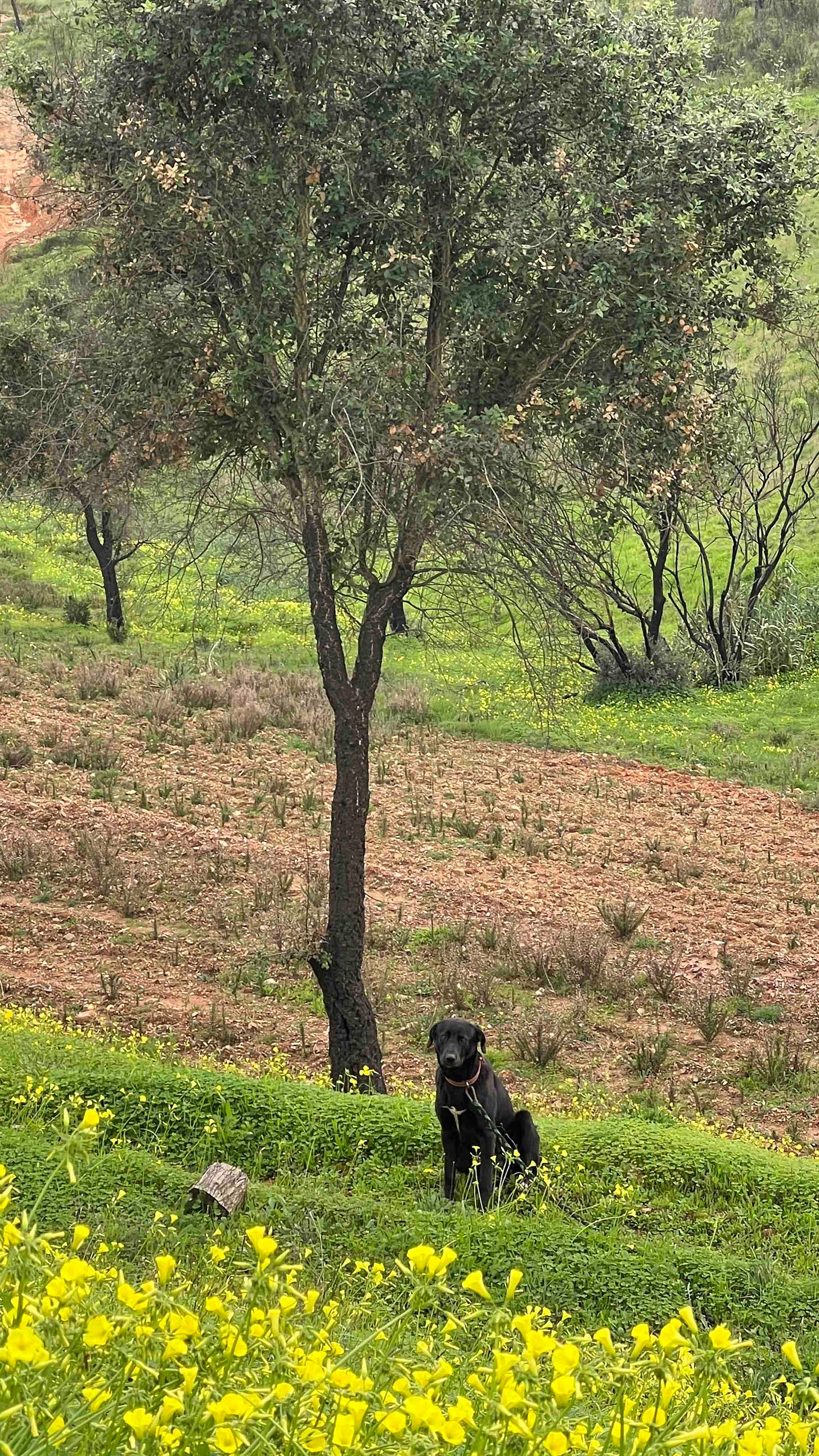
Angry letters from the town hall about unsubmitted documents, continuing fighting over the unpolished concrete people and the unrequited pursuit of our African president.
We should of course “be careful what you wish for” – even if more rain is what this region really needed.
I’ve covered enough massive storms to know there’s not much you can do about big weather in big nature...but I wish I’d thought about diverting the trenches...and I wish our builders had as well.
When the downhill trench to our solar house was finished earlier in the week and I realised it bisected a stream and a swale that usually bring a lot of water to our lake, it got me thinking.
In the absence of our contractor on site we took things into our own hands and pushed reluctant builder Justo to block his new trench and lower some ground to encourage the water towards the lake.
If we’d left it, the solar house would have been flooded and all our solar batteries would have been destroyed. That’s a known-known.
If only he – and we – had thought about the impact of the other long-drop trench on the other side of the hill...directing thousands of litres of water into our thousands of euros worth of tanks.
The rain has stopped, but the rivers and streams continue heading into our lake which is almost overflowing – as is our downstream neighbour Daniel’s.
I’ve cleared the overflow pipes, placed some rocks and boulders to slow down the flow and we will wait to see where the deluge goes...we’ve warned friends further down the valley, but the rain may have stopped just in time.
No more rain is forecast for a week, once it’s drier we can bring back the machines, dig everything out and start all over again.
I’ve learned a lot from friends and from experience, but sometimes I wish I didn’t have to.
There are great parts to living this life, but sometimes I wish it wasn’t just us with all the responsibility for guessing what might happen, what might go wrong, before it does.
And having to coordinate everything ourselves leaves gaps of plausible deniability where people with greater experience can make excuses for not thinking ahead and acting appropriately. Oh well…


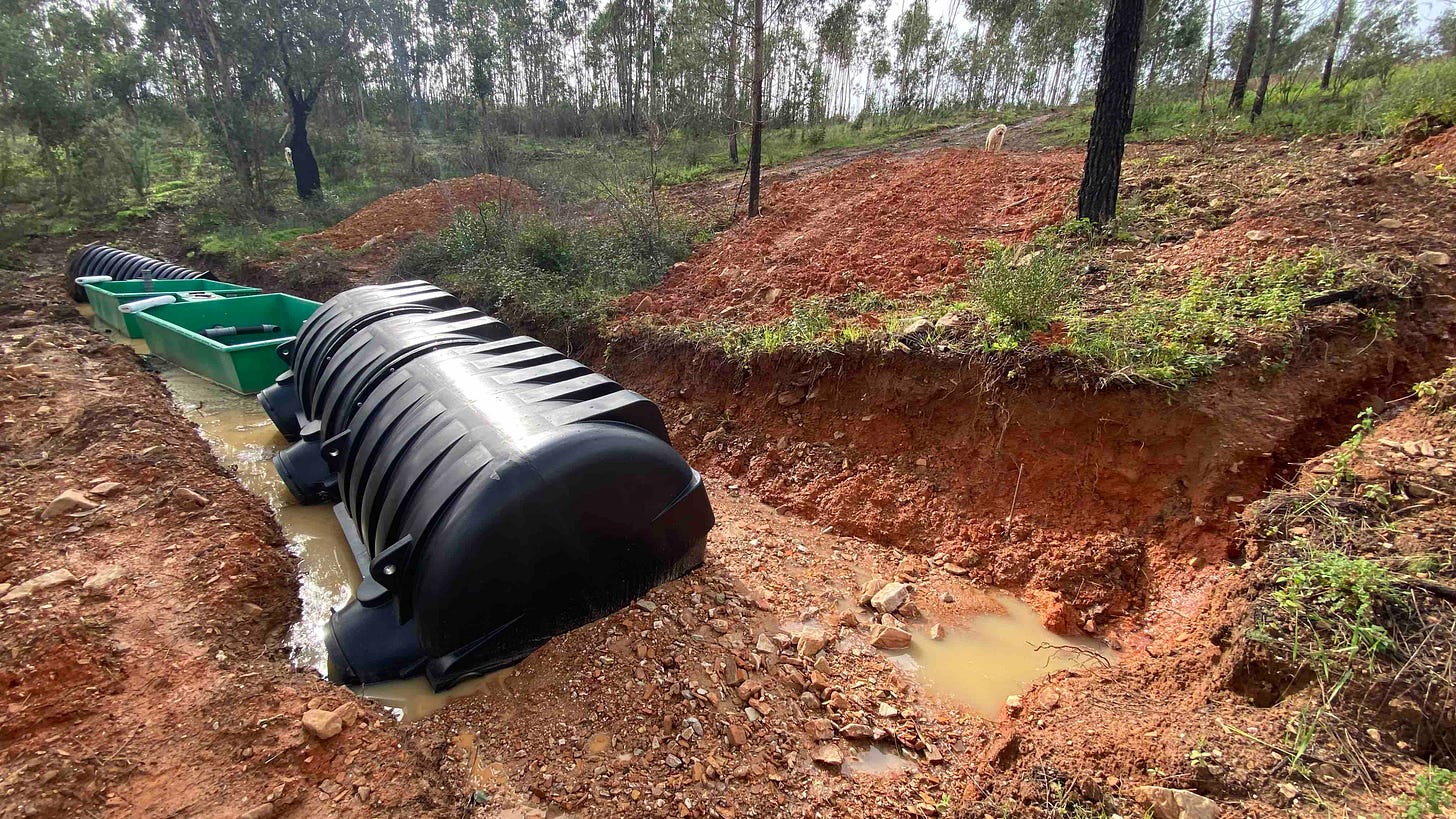
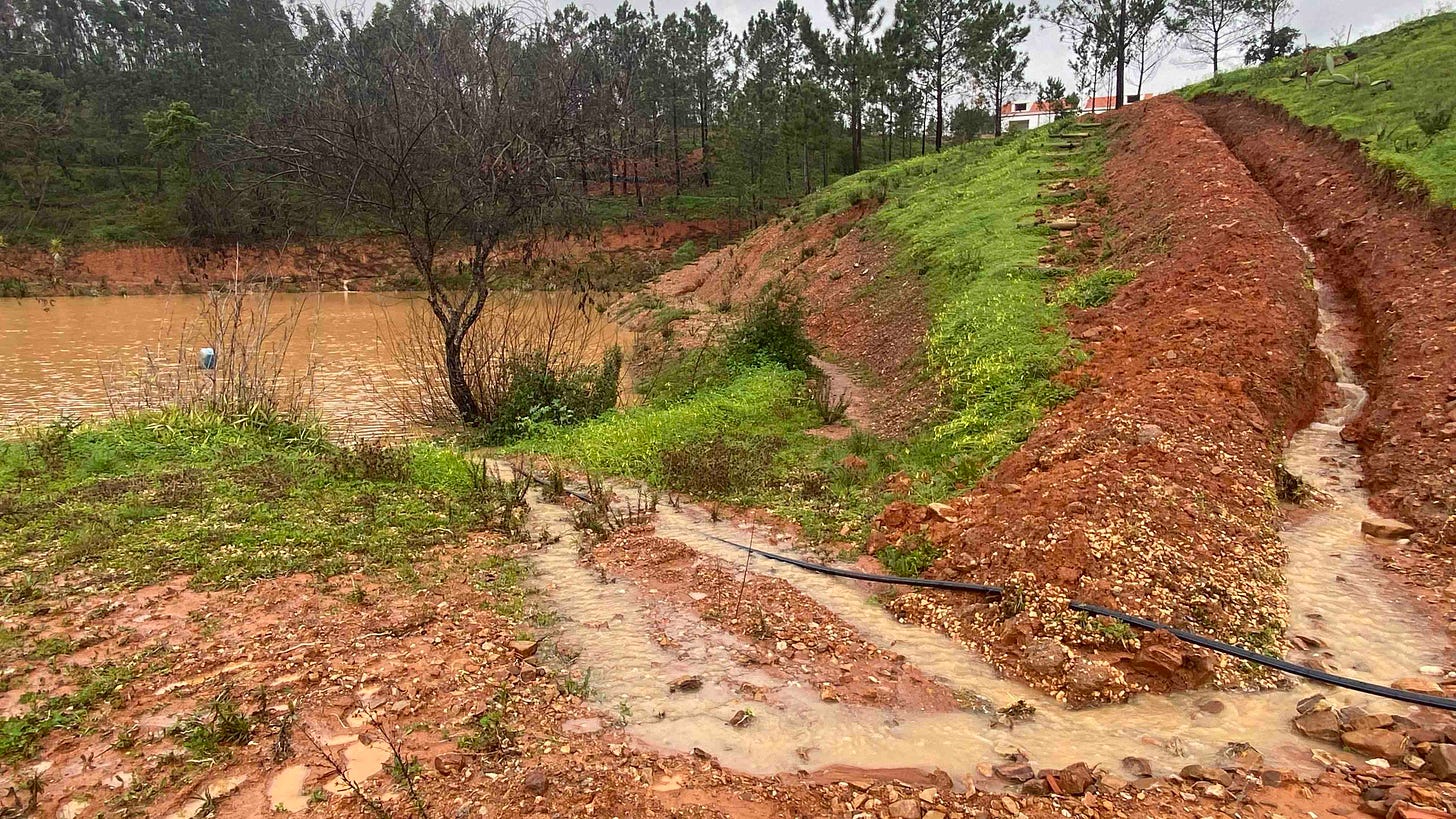

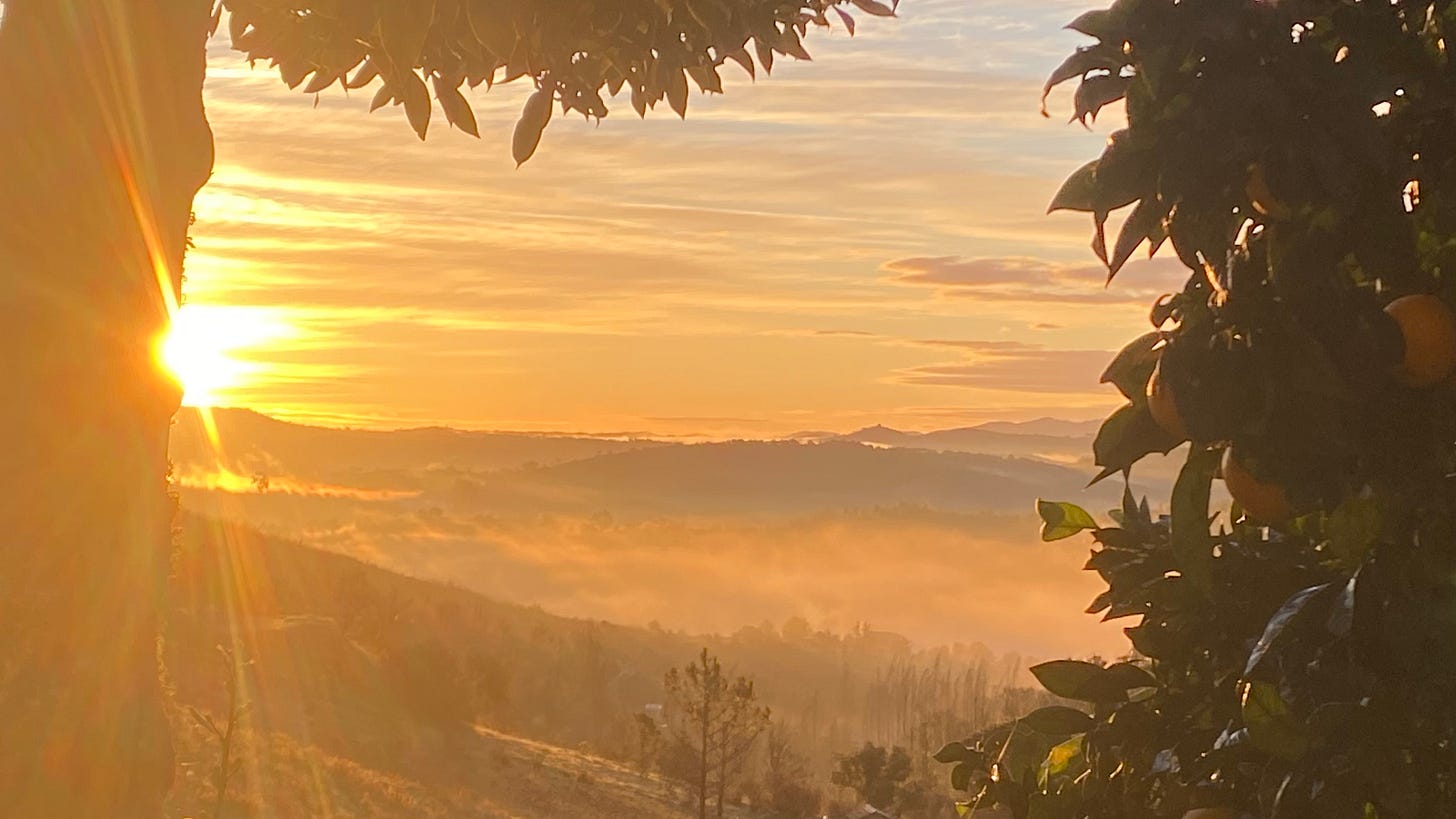
OMG!!! Hope you get everything sorted out soon Alastair. It sounds like a nightmare...
Yup...I think the key to making this work is not to know everything, but knowing enough to know what might happen before it does!